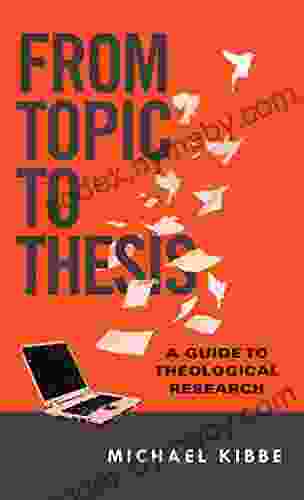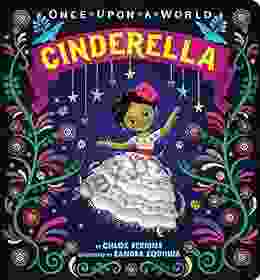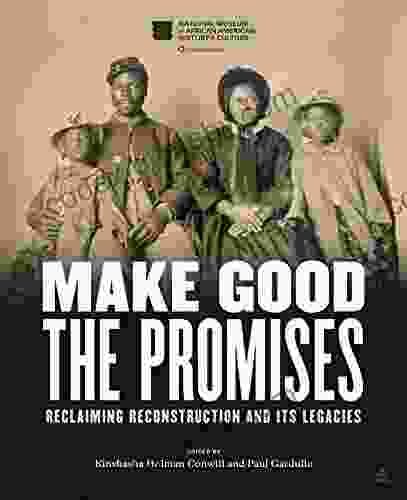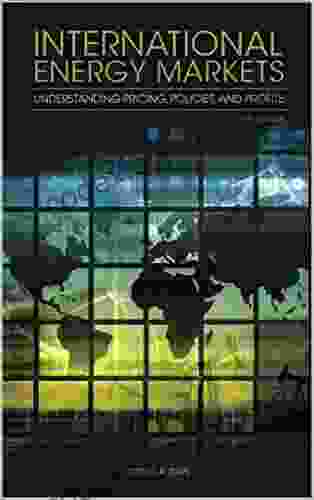Guide to Theological Research: A Comprehensive Companion for Scholars

Theological research delves into the profound depths of religious truths, exploring the intricacies of faith, belief, and the divine. It is not a mere academic pursuit but a sacred journey of discovery, enlightenment, and transformative understanding. This comprehensive guide will illuminate the path for scholars, aspiring theologians, and anyone seeking to unravel the mysteries of the spiritual realm.
Navigating the Landscape of Theological Sources
The foundation of theological research lies in meticulous exploration of primary and secondary sources. Primary sources, such as scriptures, historical documents, and personal letters, offer firsthand accounts of religious experiences and beliefs. Secondary sources, which include scholarly works, commentaries, and interpretations, provide valuable insights and perspectives on these primary materials.
4.6 out of 5
| Language | : | English |
| File size | : | 8570 KB |
| Text-to-Speech | : | Enabled |
| Screen Reader | : | Supported |
| Enhanced typesetting | : | Enabled |
| Word Wise | : | Enabled |
| Print length | : | 161 pages |
Primary Sources: The Cornerstones of Inquiry
Primary sources hold immense significance in theological research, providing unfiltered access to the words and ideas of religious figures, communities, and movements. Biblical texts, for instance, form the cornerstone of Christian and Jewish scholarship, while ancient papyri and inscriptions shed light on the religious practices of early civilizations.
Secondary Sources: Enhancing Understanding
While primary sources provide the raw materials for theological investigation, secondary sources serve as invaluable tools for interpretation and analysis. Scholarly commentaries, for example, offer critical insights into the historical, linguistic, and theological dimensions of scriptures. Monographs and dissertations explore specific theological concepts or issues in depth.
Research Methodologies for Theological Exploration
Theological research encompasses a diverse range of methodologies, each tailored to specific research questions and objectives. Qualitative methods, such as hermeneutics and exegesis, focus on the interpretation and understanding of religious texts. Quantitative methods, on the other hand, employ statistical analysis to examine patterns and trends in religious data.
Hermeneutics: Unveiling the Meaning of Texts
Hermeneutics, the art of biblical interpretation, is a cornerstone of theological research. It involves a rigorous examination of the historical, cultural, and linguistic context in which religious texts were written. Hermeneutical methods seek to uncover the intended meaning of the text, taking into account its literary structure, genre, and the author's intended purpose.
Exegesis: Expounding the Scriptures
Exegesis, a more detailed form of biblical interpretation, delves deeply into the grammatical, syntactical, and historical aspects of a text. It involves a meticulous analysis of word meanings, sentence structure, and the overall flow of the text. Exegesis aims to uncover the precise meaning of the text, considering its immediate context as well as its broader theological implications.
Quantitative Methods: Exploring Patterns and Trends
Quantitative methods, such as statistical analysis and surveys, bring a scientific rigor to theological research. They allow researchers to examine large datasets, identify patterns and trends, and draw s based on empirical evidence. These methods can be particularly useful in studying religious demographics, the impact of religious beliefs on behavior, and the changing nature of religious practices over time.
Ethical Considerations in Theological Research
The pursuit of theological knowledge must always be tempered by ethical considerations. Researchers have a responsibility to treat their subjects with respect and confidentiality, adhering to the highest standards of academic integrity. This includes obtaining informed consent, protecting anonymity, and avoiding any form of exploitation or harm.
Respecting Human Dignity
Theological research often involves studying the beliefs and practices of individuals and communities. Researchers must always prioritize the dignity and well-being of their subjects. This includes respecting their privacy, cultural sensitivities, and the right to withdraw from the research at any time.
Academic Integrity
Rigorous academic standards must be upheld in theological research. Researchers must accurately represent their findings, avoid plagiarism, and give proper credit to the ideas and contributions of others. This ensures the integrity and credibility of the research and fosters a culture of intellectual honesty.
Academic Writing: Communicating Theological Findings
The culmination of theological research is often expressed through academic writing. This may include dissertations, journal articles, or books. Effective academic writing requires clarity, precision, and a well-structured argument. Researchers must adhere to established academic conventions, such as proper citation and referencing, to ensure that their work is both informative and credible.
Clarity and Precision
Theological writing should be clear and accessible to readers, regardless of their background or level of knowledge. Researchers must use precise language, define unfamiliar terms, and avoid jargon that may alienate or confuse their audience.
Structured Argumentation
Academic writing should present a well-structured argument that is supported by evidence and reasoning. Researchers must introduce their thesis statement clearly, provide evidence to support their claims, and address counterarguments or objections.
Citation and Referencing
Proper citation and referencing are essential for academic integrity and allow readers to verify the sources of information. Researchers must adhere to established citation styles, such as MLA or Chicago, to ensure that their sources are properly attributed and their work is credible.
The pursuit of theological research is a noble endeavor that opens doors to profound understanding of the divine and the human condition. This comprehensive guide has provided a roadmap for scholars and aspiring theologians, offering insights into the nuanced landscape of theological sources, research methodologies, ethical considerations, and academic writing. By embracing these principles and practices, researchers can embark on a journey of discovery that will enrich their understanding, broaden their perspectives, and contribute to the advancement of theological knowledge.
Remember, the path of theological research is not without its challenges, but with perseverance and a deep-seated passion for truth, you will navigate its complexities and emerge as a beacon of enlightenment, inspiring others to embark on their own quests for divine understanding.
4.6 out of 5
| Language | : | English |
| File size | : | 8570 KB |
| Text-to-Speech | : | Enabled |
| Screen Reader | : | Supported |
| Enhanced typesetting | : | Enabled |
| Word Wise | : | Enabled |
| Print length | : | 161 pages |
Do you want to contribute by writing guest posts on this blog?
Please contact us and send us a resume of previous articles that you have written.
 Book
Book Novel
Novel Page
Page Chapter
Chapter Text
Text Story
Story Genre
Genre Reader
Reader Library
Library Paperback
Paperback E-book
E-book Magazine
Magazine Newspaper
Newspaper Paragraph
Paragraph Sentence
Sentence Bookmark
Bookmark Shelf
Shelf Glossary
Glossary Bibliography
Bibliography Foreword
Foreword Preface
Preface Synopsis
Synopsis Annotation
Annotation Footnote
Footnote Manuscript
Manuscript Scroll
Scroll Codex
Codex Tome
Tome Bestseller
Bestseller Classics
Classics Library card
Library card Narrative
Narrative Biography
Biography Autobiography
Autobiography Memoir
Memoir Reference
Reference Encyclopedia
Encyclopedia Denise Kahn
Denise Kahn Mostyn Heilmannovsky
Mostyn Heilmannovsky Irving Layton
Irving Layton Chris Rawson
Chris Rawson Chris Quintana
Chris Quintana Um A Yube
Um A Yube Christopher West
Christopher West M R Mathias
M R Mathias Edupan7 Publishing
Edupan7 Publishing Chris Barton
Chris Barton Ann M Martin
Ann M Martin Christina Asquith
Christina Asquith Janet Menzies
Janet Menzies Osman Yousefzada
Osman Yousefzada Holly George Warren
Holly George Warren Christina Tosi
Christina Tosi Sally Pipes
Sally Pipes Cynthia Chin Lee
Cynthia Chin Lee Sam Goulden
Sam Goulden James Barbato
James Barbato
Light bulbAdvertise smarter! Our strategic ad space ensures maximum exposure. Reserve your spot today!
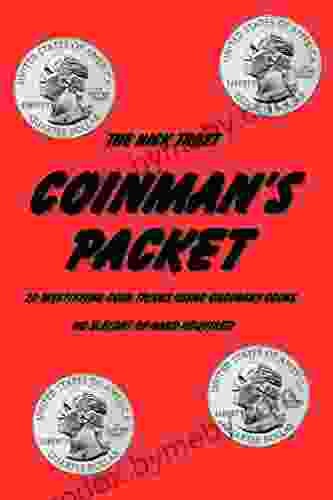
 Nathaniel Hawthorne20 Mystifying Coin Tricks Using Ordinary Coins No Sleight Of Hand Required...
Nathaniel Hawthorne20 Mystifying Coin Tricks Using Ordinary Coins No Sleight Of Hand Required... Duane KellyFollow ·10.9k
Duane KellyFollow ·10.9k Thomas PowellFollow ·3k
Thomas PowellFollow ·3k Clarence MitchellFollow ·15.7k
Clarence MitchellFollow ·15.7k Phil FosterFollow ·19.8k
Phil FosterFollow ·19.8k Eugene PowellFollow ·17.6k
Eugene PowellFollow ·17.6k Jason ReedFollow ·3.9k
Jason ReedFollow ·3.9k Dwayne MitchellFollow ·15.9k
Dwayne MitchellFollow ·15.9k Orson Scott CardFollow ·2.3k
Orson Scott CardFollow ·2.3k

 Rick Nelson
Rick NelsonThe Power of Positivity: 51 Motivational Quotes to...
In the tapestry of life, we encounter...
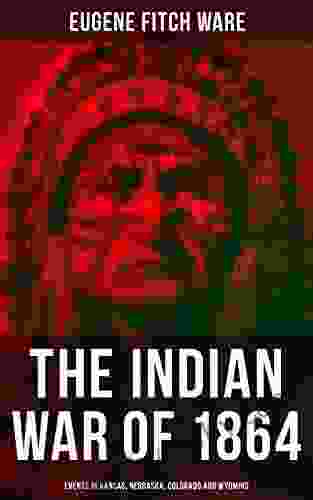
 Lee Simmons
Lee SimmonsThe Indian War of 1864: A Devastating Conflict in the...
The Indian War of 1864 was a brutal...
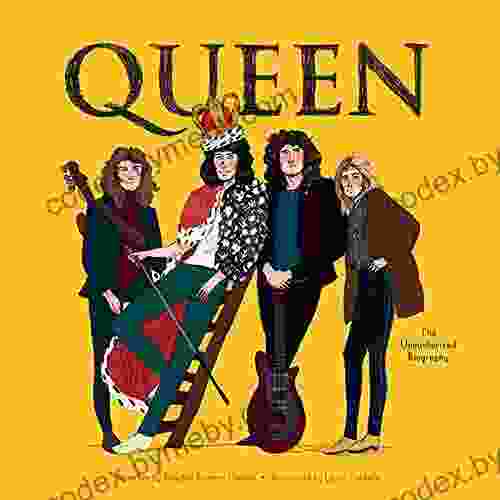
 Eddie Bell
Eddie BellQueen: The Unauthorized Biography: Unraveling the Secrets...
Prepare to delve into the captivating...

 Dion Reed
Dion ReedUnveiling the Imperfect Gems of Trauma and...
In the tapestry of...
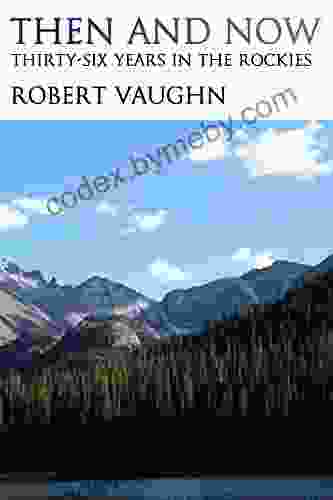
 Desmond Foster
Desmond FosterThirty-Six Years in the Rockies: A Timeless Masterpiece...
A Journey Through Time and...
4.6 out of 5
| Language | : | English |
| File size | : | 8570 KB |
| Text-to-Speech | : | Enabled |
| Screen Reader | : | Supported |
| Enhanced typesetting | : | Enabled |
| Word Wise | : | Enabled |
| Print length | : | 161 pages |


